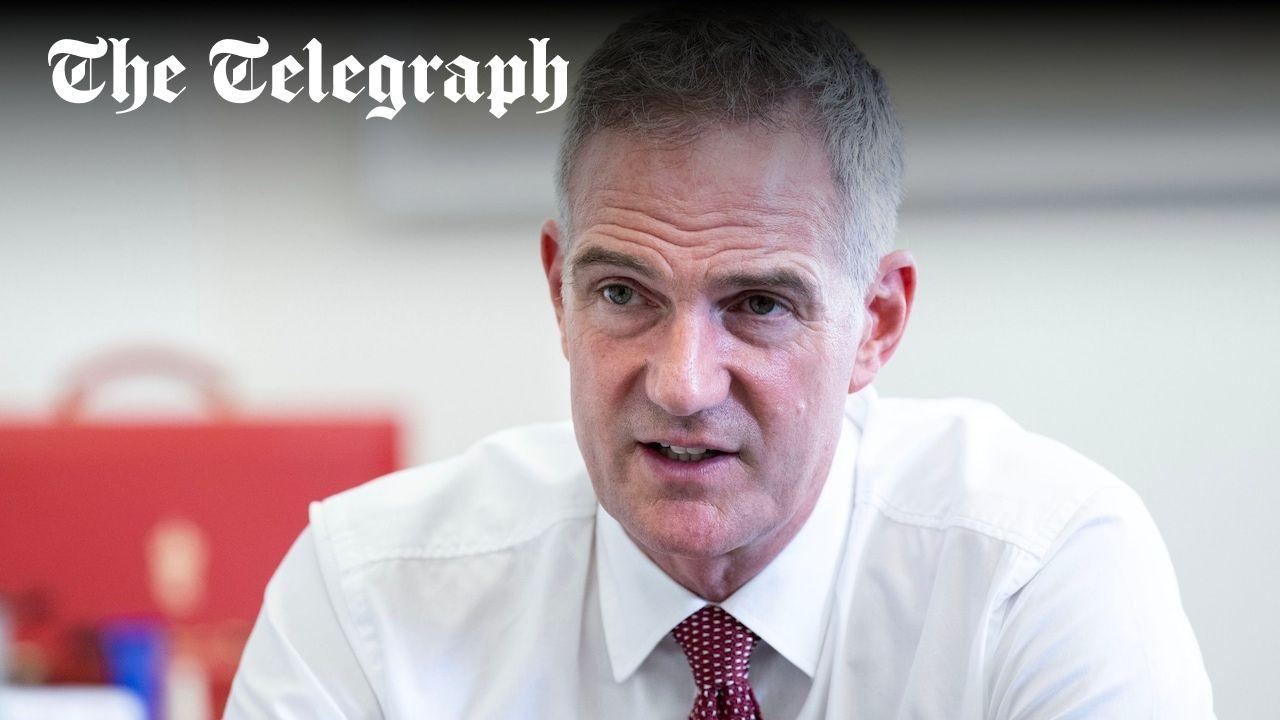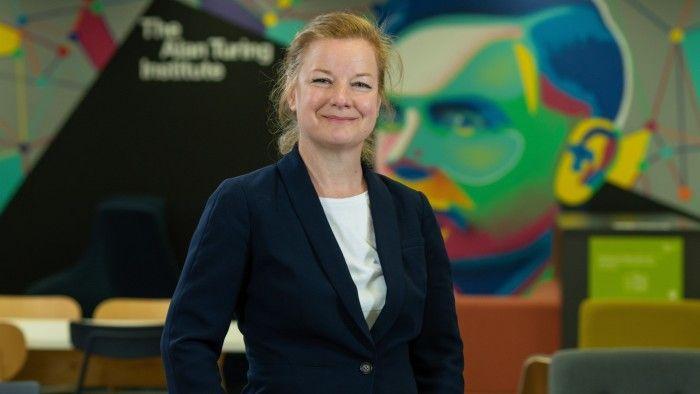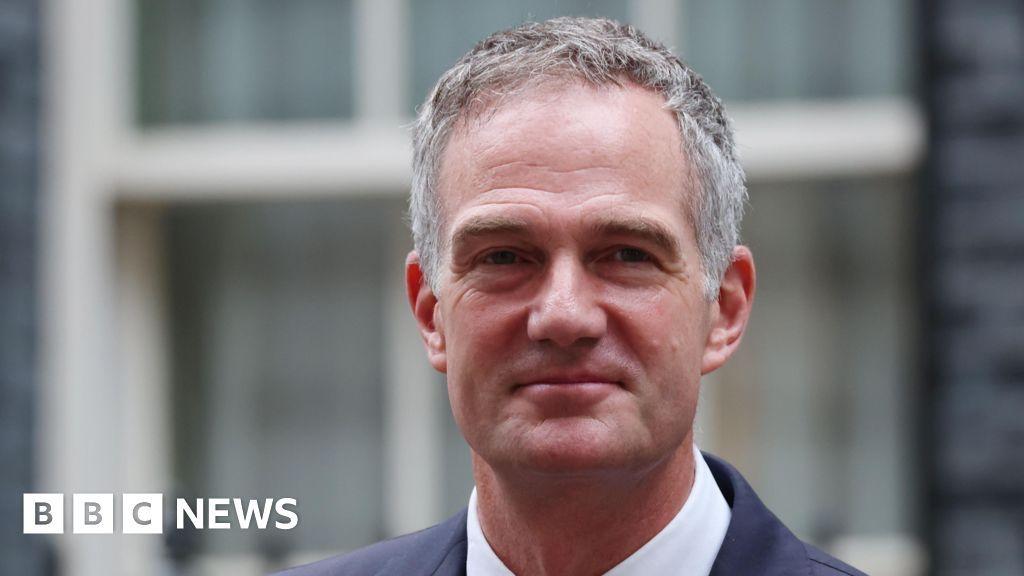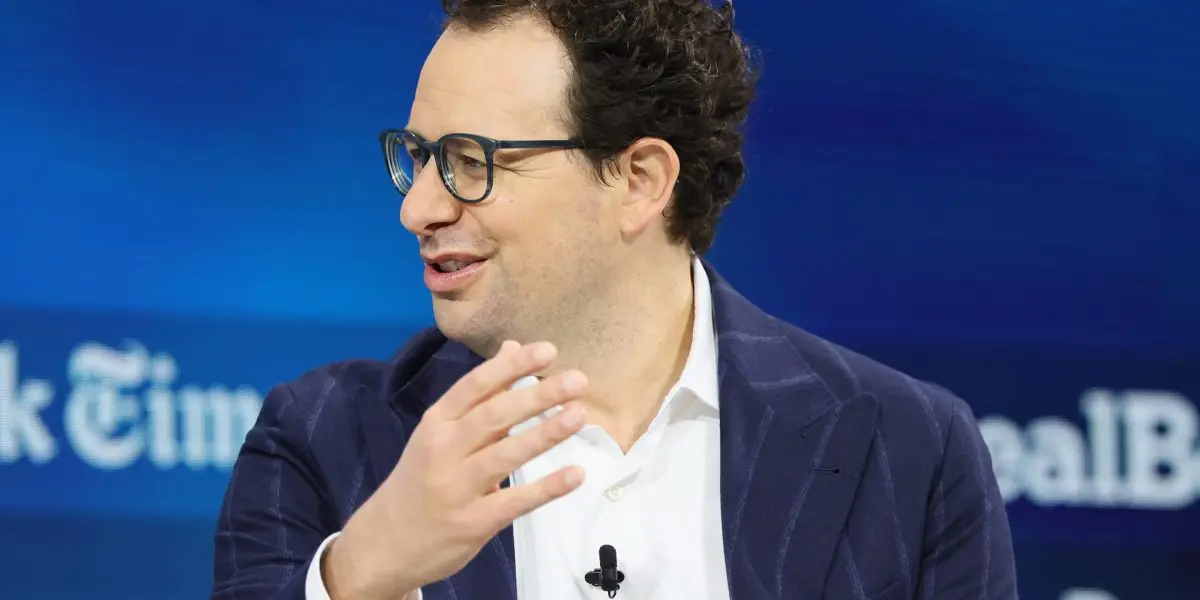UK's Alan Turing Institute Faces Crisis Amid Government Pressure and Staff Concerns
4 Sources
4 Sources
[1]
Staff fear UK's Turing AI Institute at risk of collapse
A government spokesperson said Kyle "has been clear he wants [the Turing Institute] to deliver real value for money for taxpayers". The Department for Science, Innovation & Technology (DSIT) spokesperson said the institute "is an independent organisation and has been consulting on changes to refocus its work under its Turing 2.0 strategy". "The changes set out in his letter would do exactly that, giving the Institute a key role in safeguarding our national security and positioning it where the British public expects it to be," they said. It comes after Kyle urged the Turing Institute to focus on defence research and suggested funding would be pulled unless it changed. Kyle also wants an overhaul of its leadership. Any shift to focusing on defence would be a significant pivot for the publicly funded organisation, which was given a grant of £100m by the previous Conservative government last year. Founded in 2015 as the UK's leading centre of AI research, the Turing Institute has been rocked by internal discontent and criticism of its research activities. In the complaint, the staff said Kyle's letter had triggered "a crisis in governance". The government's £100m grant was "now at risk of being withdrawn, a move that could lead to the institute's collapse", the complaint said. The Turing Institute told the BBC it was undertaking "substantial organisational change to ensure we deliver on the promise and unique role of the UK's national institute for data science and AI". "As we move forward, we're focused on delivering real world impact across society's biggest challenges, including responding to the national need to double down on our work in defence, national security and sovereign capabilities," said a spokesperson. The BBC has been told the Turing Institute has not received notification of a complaint and has not seen the letter sent by staff. A Charity Commission spokesperson said: "We are currently assessing concerns raised about the Alan Turing Institute to determine any regulatory role for us." They said it is in the early stages of this assessment and has not decided whether to launch a formal legal investigation.
[2]
UK's Turing AI Institute bosses respond to staff anger in letter
The heads of the UK's national institute for artificial intelligence (AI) have told staff they accept recent months have been "challenging" for staff as the charity undergoes "substantial" change. It comes after staff raised "serious and escalating concerns" in a whistleblowing complaint this week submitted to the Charity Commission. They warned the charity - which receives £100m from the government - is at risk of collapse after Technology Secretary Peter Kyle instructed it to prioritise defence, and threatened to pull its funding if it did not. In a letter seen by the BBC, Chair Dr Doug Gurr said the Turing institute would "step up at a time of national need".
[3]
Staff at UK's top AI institute complain to watchdog about its internal culture
Whistleblowing complaint warns Alan Turing Institute is in danger of collapse due to government threats over funds Staff at the UK's leading artificial intelligence institute have raised concerns about the organisation's governance and internal culture in a whistleblowing complaint to the charity watchdog. The Alan Turing Institute (ATI), a registered charity with substantial state funding, is under government pressure to overhaul its strategic focus and leadership after an intervention last month from the technology secretary, Peter Kyle. In a complaint to the Charity Commission, a group of current ATI staff raise eight points of concern and say the institute is in danger of collapse due to government threats over its funding. The complaint alleges that the board of trustees, chaired by the former Amazon UK boss Doug Gurr, has failed to fulfil core legal duties such as providing strategic direction and ensuring accountability, with staff alleging a letter of no confidence was delivered last year and not acted upon. A spokesperson for ATI said the Charity Commission had not been in touch with the institute about any complaints that may have been sent to the organisation. They added that a whistleblower complaint had been filed last year to the government's UK Research and Innovation body, which funds ATI, and a subsequent independent investigation found no concerns. The complaint comes after ATI, which is undergoing a restructuring, notified about 50 staff - or approximately 10% of its workforce - that they were at risk of redundancy. It claims ATI's funding is at risk, citing "privately raised concerns" from unnamed industry partners, while warning that Kyle has made clear that future government support is contingent on improved delivery and leadership change. In a letter to Gurr this month, Kyle called for a switch in focus to defence and national security at ATI, as well as leadership changes. While the letter stated ATI should "continue to receive the funding needed to implement reforms", it said its "longer-term funding arrangement" could be reviewed next year. The complaint claims there has been no internal or external accountability for how ATI funds have been used. It alleges there is an internal culture of "fear, exclusion, and defensiveness". It also alleges the board has not provided adequate oversight of a series of senior leadership departures under the chief executive, Jean Innes, nor of senior leadership appointments, and that ATI's credibility with "staff, funders, partners, and the wider public has been significantly undermined", as shown by the letter of no confidence and Kyle's intervention. The Guardian has also learned that ATI is shutting projects related to online safety, tackling the housing crisis and reducing health inequality as part of its restructuring, which is resulting in the closure or mothballing of multiple strands of research. The restructuring has triggered internal upheaval at ATI, with more than 90 staff sending a letter to the board last year warning that cost cuts were putting the organisation's reputation at risk. Among the projects slated for closure are work on developing AI systems to detect online harms, producing AI tools that can help policymakers tackle issues such as inequality and affordability in the housing market and measuring the impact in health inequality of major policy decisions like lockdowns. Other projects expected to close include an AI-based analysis of how the government and media interact. A project looking at social bias in AI outcomes will also be dropped. Projects being paused include a study into how AI might affect human rights and democracy, as well as research into creating a global approach to AI ethics. A spokesperson for ATI said: "We're shaping a new phase for the Turing, and this requires substantial organisational change to ensure we deliver on the promise and unique role of the UK's national institute for data science and AI. As we move forward, we're focused on delivering real-world impact across society's biggest challenges, including responding to the national need to double down on our work in defence, national security and sovereign capabilities." A Charity Commission spokesperson said the organisation could not confirm or deny whether it had received a complaint, in order to protect the identity of any whistleblowers.
[4]
Alan Turing Institute accused of 'mismanagement of public funds'
Staff at the Alan Turing Institute (ATI) have filed a whistleblowing complaint with the charity watchdog, alleging the "mismanagement of public funds" amid a "crisis" at the publicly funded research institution. The ATI, which last year was handed £100m in taxpayer funding, was accused of a "failure to deliver on its charitable mission" in the filing with the Charity Commission, The Telegraph understands. The complaint alleges that public cash and donations have been spent on "wasted resources" with "no accountability" over how funds have been deployed. Established in 2015 as Britain's leading centre of artificial intelligence (AI) research, the ATI has been in turmoil amid questions over its effectiveness and internal anger from staff. Peter Kyle, the Technology Secretary, stepped in last month, writing a letter to the chairman of the ATI demanding "reform" and that it change its focus to defence. Mr Kyle told Doug Gurr, the former Amazon UK boss who is chairman of the ATI's board of trustees, it must "evolve and adapt" and warned long-term funding for Turing would be tied to new objectives prioritising "defence, national security and sovereign capabilities". In the whistleblowing complaint, staff warned that the threat to funding "could lead to the Institute's collapse". It is understood that the Charity Commission is in the early stages of examining the claims. As part of the complaint, staff claim that the ATI has shifted its priorities away from its stated charitable purpose, which includes research into "data-centric engineering, high performance computing and cyber security, to smart cities, health, the economy and data ethics". Questions for the ATI The ATI, which is named after the Second World War code-breaker Alan Turing, has since scrapped or paused a number of initiatives under its public policy programme, including initiatives to study women and diversity in data science and AI bias. It is not the first time the ATI has faced questions over its direction. A report last month from British Progress, a think tank, claimed it had a "fragmented and thinly spread research portfolio" that had drifted toward "work rooted in social and political critique". The uncertainty at the research lab has been accompanied by the exit of senior researchers and executives. Turing's chief technology officer, Jonathan Starck, left the ATI just nine months after being appointed, while two senior scientists - Andrew Duncan and Marc Deisenroth - both also left earlier this year after originally being asked to lead a series of "grand challenges" for the organisation. The ATI has been in the process of cutting dozens of jobs, while it has been grappling with plunging morale among staff after ending a number of projects. It is understood that a separate whistleblowing complaint, sent to the UK Research and Innovation funding agency, about the ATI was the subject of an independent investigation, which found no concerns. A spokesman for the Alan Turing Institute said: "We're shaping a new phase for the Turing, and this requires substantial organisational change to ensure we deliver on the promise and unique role of the UK's national institute for data science and AI. "As we move forward, we're focused on delivering real-world impact across society's biggest challenges, including responding to the national need to double down on our work in defence, national security and sovereign capabilities." A Charity Commission spokesman declined to comment.
Share
Share
Copy Link
The Alan Turing Institute, UK's leading AI research center, is undergoing significant changes and facing internal turmoil as the government pushes for a shift towards defense research, threatening its funding and sparking staff concerns.
Government Pressure and Funding Concerns
The Alan Turing Institute (ATI), the UK's leading center for artificial intelligence research, is facing a critical juncture as the government pushes for a significant shift in its focus. Technology Secretary Peter Kyle has urged the institute to prioritize defense research and suggested that funding could be pulled unless changes are made
1
2
. This move has sparked concerns among staff, who warn that the £100 million government grant is "now at risk of being withdrawn, a move that could lead to the institute's collapse"1
.
Source: The Telegraph
Whistleblowing Complaint and Internal Turmoil
In response to the mounting pressure and internal issues, a group of ATI staff has filed a whistleblowing complaint with the Charity Commission. The complaint raises "serious and escalating concerns" about the institute's governance and internal culture
2
3
. Key allegations include:- Failure of the board of trustees to fulfill core legal duties
- Lack of accountability for fund usage
- An internal culture of "fear, exclusion, and defensiveness"
- Inadequate oversight of senior leadership changes
- Mismanagement of public funds and wasted resources
4
The complaint also mentions a letter of no confidence delivered last year that was allegedly not acted upon
3
.Organizational Changes and Project Closures
As part of its restructuring efforts, dubbed "Turing 2.0," the institute is making substantial organizational changes. These include:
- Notifying about 50 staff (approximately 10% of the workforce) of potential redundancy
3
- Shutting down or mothballing multiple research strands
3
- Closing projects related to online safety, tackling the housing crisis, and reducing health inequality
3
- Pausing research on AI's impact on human rights and democracy
3
Leadership Response and Future Direction
In response to the turmoil, ATI Chair Dr. Doug Gurr stated that the institute would "step up at a time of national need"
2
. The institute's spokesperson emphasized their focus on delivering "real-world impact across society's biggest challenges, including responding to the national need to double down on our work in defence, national security and sovereign capabilities"1
3
.Related Stories
Wider Implications and Criticism
The situation at ATI has broader implications for the UK's AI research landscape. Critics, including a think tank report, have claimed that the institute had a "fragmented and thinly spread research portfolio" that had drifted toward "work rooted in social and political critique"
4
. The uncertainty has also led to the departure of senior researchers and executives4
.Regulatory Oversight
The Charity Commission has confirmed that it is assessing the concerns raised about the Alan Turing Institute to determine any regulatory role
1
. However, the investigation is still in its early stages, and no decision has been made on whether to launch a formal legal inquiry1
3
.As the situation unfolds, the future of the UK's national institute for data science and AI hangs in the balance, with potential repercussions for the country's position in the global AI research landscape.
References
Summarized by
Navi
[4]
Related Stories
Alan Turing Institute CEO Resigns Amid Turmoil and Strategic Shift
05 Sept 2025•Policy and Regulation

UK Government Demands AI Institute Shift Focus to Defense and National Security
04 Jul 2025•Policy and Regulation

UK Rebrands AI Safety Institute to AI Security Institute, Shifts Focus to Cybersecurity and Partnerships
14 Feb 2025•Policy and Regulation

Recent Highlights
1
SpaceX acquires xAI as Elon Musk bets big on 1 million satellite constellation for orbital AI
Technology

2
French Police Raid X Office as Grok Investigation Expands to Include Holocaust Denial Claims
Policy and Regulation

3
UNICEF Demands Global Crackdown on AI-Generated Child Abuse as 1.2 Million Kids Victimized
Policy and Regulation





